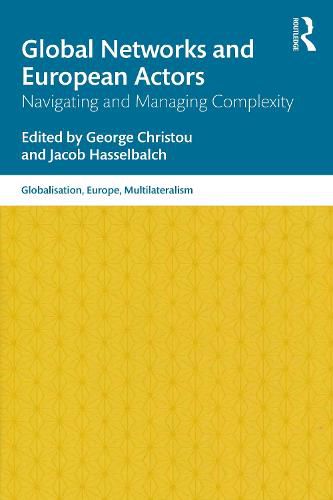Readings Newsletter
Become a Readings Member to make your shopping experience even easier.
Sign in or sign up for free!
You’re not far away from qualifying for FREE standard shipping within Australia
You’ve qualified for FREE standard shipping within Australia
The cart is loading…






This book examines the ability of the EU and European actor networks to coherently and effectively navigate, manage, and influence debates and policy on the international stage. It also questions whether increasing complexity across a range of critical global issues and networks has affected this ability.
Engaging with the growing theoretical and conceptual literature on networks and complexity, the book provides a deeper understanding of how the European Union and European actors navigate within global networks and complex regimes across a range of regulatory, policy cooperation, and foreign and security policy issue areas. It sheds light on how far they are able to respond to and shape solutions to some of the most pressing challenges on the global agenda in the 21st century.
This book will be of key interest to scholars and students of EU/European and global networks and more broadly to European and EU studies, Global Governance, International Relations, International Political Economy, and Foreign Policy and Security Studies.
$9.00 standard shipping within Australia
FREE standard shipping within Australia for orders over $100.00
Express & International shipping calculated at checkout
This book examines the ability of the EU and European actor networks to coherently and effectively navigate, manage, and influence debates and policy on the international stage. It also questions whether increasing complexity across a range of critical global issues and networks has affected this ability.
Engaging with the growing theoretical and conceptual literature on networks and complexity, the book provides a deeper understanding of how the European Union and European actors navigate within global networks and complex regimes across a range of regulatory, policy cooperation, and foreign and security policy issue areas. It sheds light on how far they are able to respond to and shape solutions to some of the most pressing challenges on the global agenda in the 21st century.
This book will be of key interest to scholars and students of EU/European and global networks and more broadly to European and EU studies, Global Governance, International Relations, International Political Economy, and Foreign Policy and Security Studies.